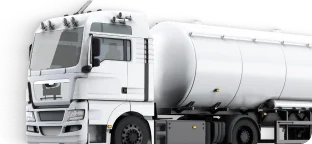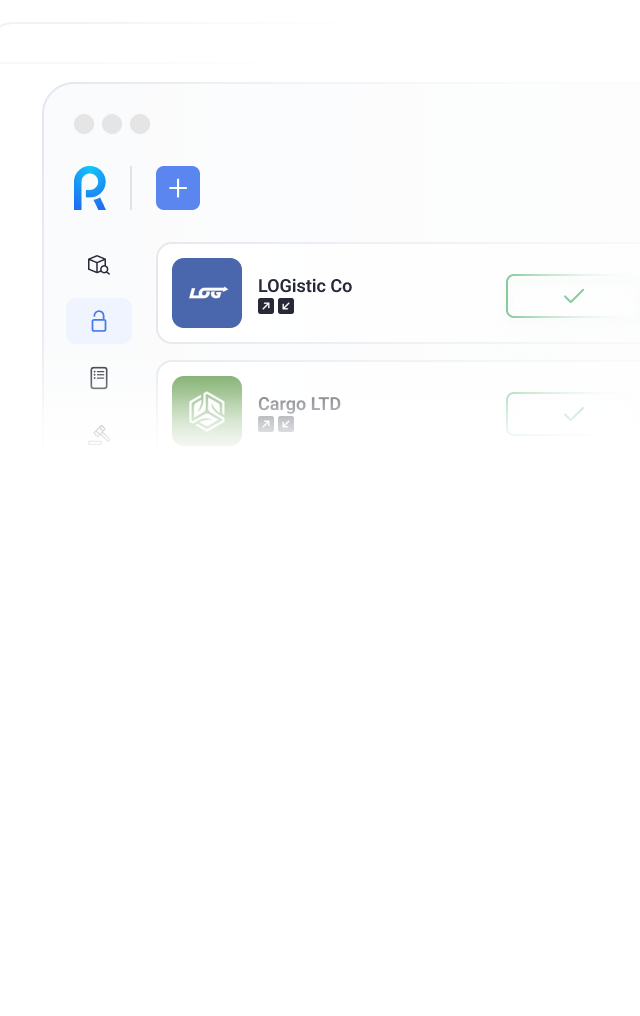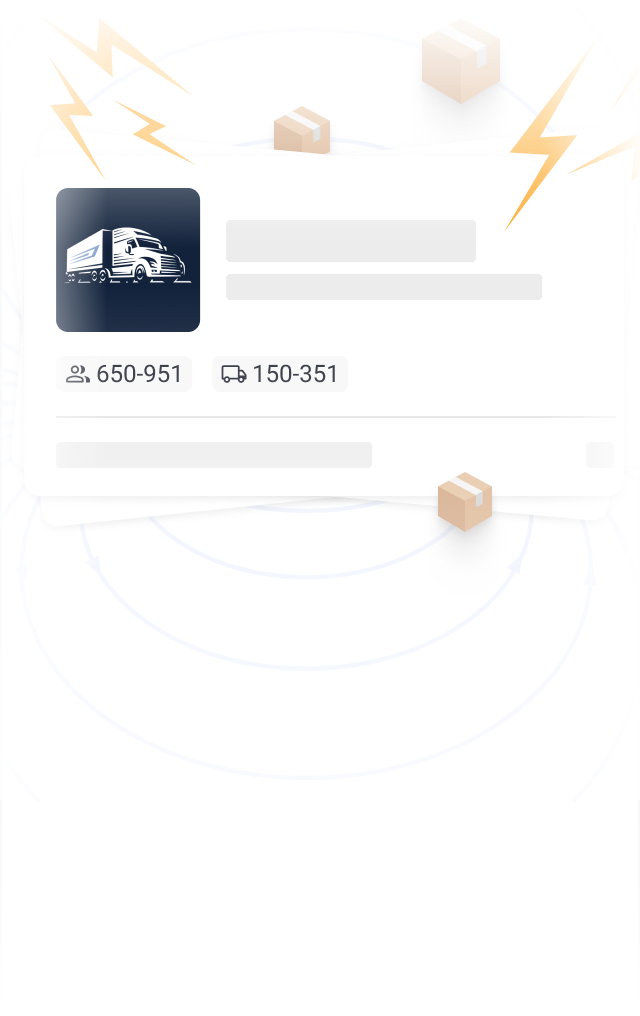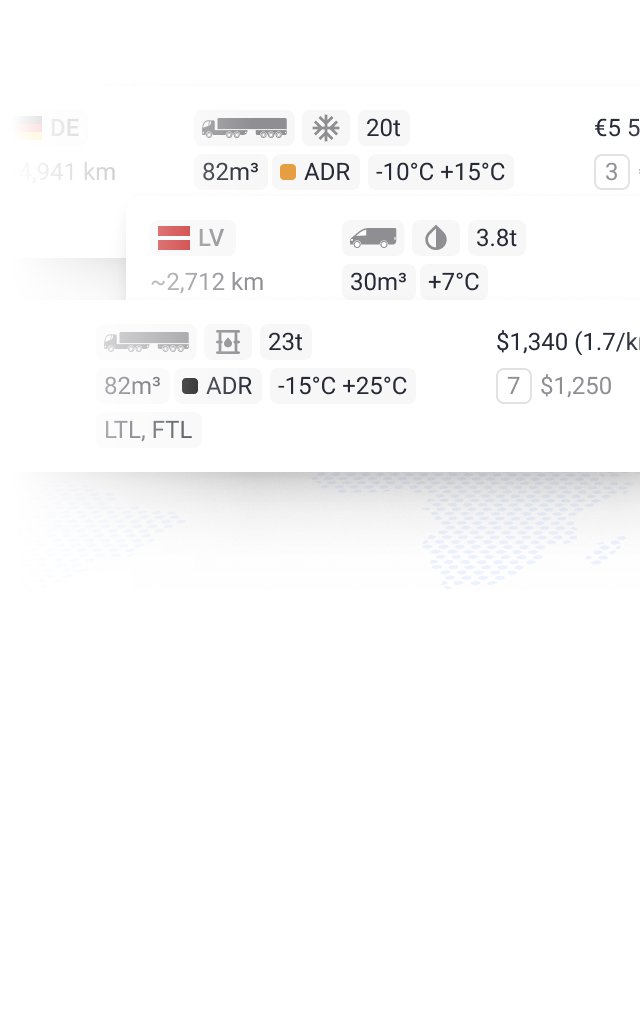
Liquid Bulk Cargo Transportation



















Liquid bulk cargo refers to goods that are in their natural liquid state or have been artificially liquefied. Many of these fall into the category of hazardous materials. To avoid risks during the road transportation of liquid cargo and prevent environmental damage, special rules established for this category must be followed.
The most hazardous liquid substances transported by tankers include petroleum products, fuel, and chemicals. For their transportation, a special certificate granting permission for vehicles and drivers to transport liquid cargoes by road is required, issued according to international standards — ADR (European Agreement concerning the International Carriage of Dangerous Goods by Road).
Examples of liquid substances include petroleum products, alcohols, oils, viscous resins, acids, and liquefied gases.
According to statistics, up to 90% of transported liquid cargoes consist of oil and its derivatives. Hydrocarbons are divided into crude oil, light products (such as gasoline and solvents), and dark products (such as asphalt and heavy fuel oil). Following in frequency of transport are various chemical components, paint materials, and food products.
Chemical compounds often include aggressive and flammable substances. Concentrated acids can corrode metal surfaces, with sulfuric acid being particularly damaging. Alcohols, liquefied gases, and many paint materials are also fire and explosion hazards.
In the subgroup of liquid food products, categories such as fats, milk, wine materials, juices, concentrates, and others stand out. Many of these are perishable. A separate group includes liquid raw materials for pharmaceutical production.
For each category, specialized transport adapted to the characteristics and hazard level of the cargo is used.
Possible methods for transporting liquid bulk cargo include delivery by road, rail, water, and air transport. The choice of method depends on the characteristics of the cargo, urgency, and the specifics of the destination location.
1. Road Transport
The most versatile and popular method of transportation. Specialized trailers (semi-trailers) and tractors are used for liquid cargoes. The key advantages of road transport are "door-to-door" delivery and the ability to monitor container conditions during transit. Several types of tank containers are used for road transport:
- IMO 0 — for non-hazardous liquids, such as water and beverages. Additional features may include thermal insulation, refrigeration, or steam heating.
- IMO 1 — for liquid chemicals, including hazardous substances and petroleum products. These tanks have additional protection and emergency sealing mechanisms.
- IMO 2 — for non-hazardous chemicals and products that allow bottom discharge.
2. Rail Transport
About 20% of railway freight consists of liquid cargoes. Liquids are transported by rail in tank cars and tank containers. The design of these vessels prevents leaks and environmental exposure. Compared to tank cars, tank containers offer maximum hermeticity and simplify logistics operations such as loading, unloading, and storage. In addition to universal tanks for petroleum products, specialized containers for acids or liquefied gases are also used in rail transport.
3. Sea Transport
When routes align, it is logistically efficient to use waterborne transport for delivering liquids, such as from extraction sites to processing facilities.
4. Air Freight
Due to high costs and strict storage requirements, air transport is only practical for delivering liquids to remote or hard-to-reach locations.
Recommendations for the safe loading, transportation, and storage of hazardous liquid substances are developed based on their physical properties. When arranging transportation services, the selection of a tanker and auxiliary equipment takes into account viscosity, freezing temperature, density, volatility, flammability, explosiveness, and corrosiveness.
- Density. When filling a reservoir, remember that the density and volume of liquids change with heating. When transporting to hot climates, leave extra space to ensure the container can withstand the pressure of the expanding substance.
- Viscosity and freezing temperature. Some liquids have high viscosity, which is especially important during loading. To reduce viscosity and increase filling speed, additional heaters or specialized pumps may be used.
- Volatility of the substance. Pay attention to transportation conditions to avoid product loss and unnecessary expenses, such as when shipping alcohol by tanker.
- Explosiveness. Critical proximity to the flash point — flammable goods can ignite from a spark if this temperature is reached.
- Self-ignition temperature. The degree of heating at which the substance ignites spontaneously without an external flame source.
- Explosion parameter. The minimum concentration of vapors in the air required to cause an explosion upon contact with a spark or hot object.
- The transported medium’s ability to accumulate static electricity. The higher this tendency, the greater the risk of ignition or explosion.
- Corrosiveness. The ability to damage container walls during transport. Acids and bases, whether pure or diluted, pose a significant risk in this regard.
- Toxicity. The level of danger to humans and the environment.
Depending on the physical characteristics, transportation of liquid bulk cargo uses stainless steel tankers with enhanced protection and additional equipment.
- Ensure that containers and loading equipment meet safety standards to prevent spills or leaks.
- Use well-trained personnel at all stages of loading, unloading, and delivery.
- Comply with the shipper's conditions, requirements for securing tanks, speed restrictions, and international/local rules and standards for transporting liquid cargo.
- Don’t forget to prepare a safety data sheet (SDS) for the transported substance.
- For international transportation of liquid bulk cargo, prepare the required accompanying and permit documents in advance, as specified by the sending and receiving countries.
For the transport of liquid cargoes, the following documents are required: a waybill and declaration. For hazardous substances, permits and licenses are mandatory. In the case of food-grade liquid cargo, additional requirements include sanitary and veterinary certificates, transport compliance documentation, and a medical certificate for the driver.
The cost of transporting live cargo is determined by transportation companies, with each organization having its own tariff. The price is influenced by factors such as the hazard level of the transported goods, storage conditions, type of transport, and the complexity and distance of the route.
Professional carriers have access to technologies and equipment for monitoring every stage of transportation, reducing the risk of accidents, leaks, and other unexpected situations.
When selecting a carrier, we recommend considering the following criteria:
- Experience in transporting liquid cargoes by tanker trucks.
- Possession of licenses and certificates confirming competence.
- Availability of various specialized vehicles and auxiliary equipment.
- Certified drivers with no medical contraindications.
- Good reputation and positive customer reviews on the company’s website.
- Competitive pricing and timelines.
- Guarantees of cargo integrity and the ability to track its location during transit.
- Official contract-based cooperation with the option to arrange insurance at the shipper's request.
- Customs support for international shipments.
- Compliance with all safety requirements.
It is always more cost-effective to analyze each company and choose a competent carrier that guarantees the reliability of all technical and organizational processes.
A transportation and forwarding company specializing in liquid cargo delivery can easily be found in the Roolz directory. Add your company, find a reliable logistics partner, and conveniently organize freight transportation!
What is liquid cargo
Liquid bulk cargo refers to goods that are in their natural liquid state or have been artificially liquefied. Many of these fall into the category of hazardous materials. To avoid risks during the road transportation of liquid cargo and prevent environmental damage, special rules established for this category must be followed.
The most hazardous liquid substances transported by tankers include petroleum products, fuel, and chemicals. For their transportation, a special certificate granting permission for vehicles and drivers to transport liquid cargoes by road is required, issued according to international standards — ADR (European Agreement concerning the International Carriage of Dangerous Goods by Road).




Add your company


 en
en fr
fr de
de hi
hi pl
pl es
es tr
tr uk
uk